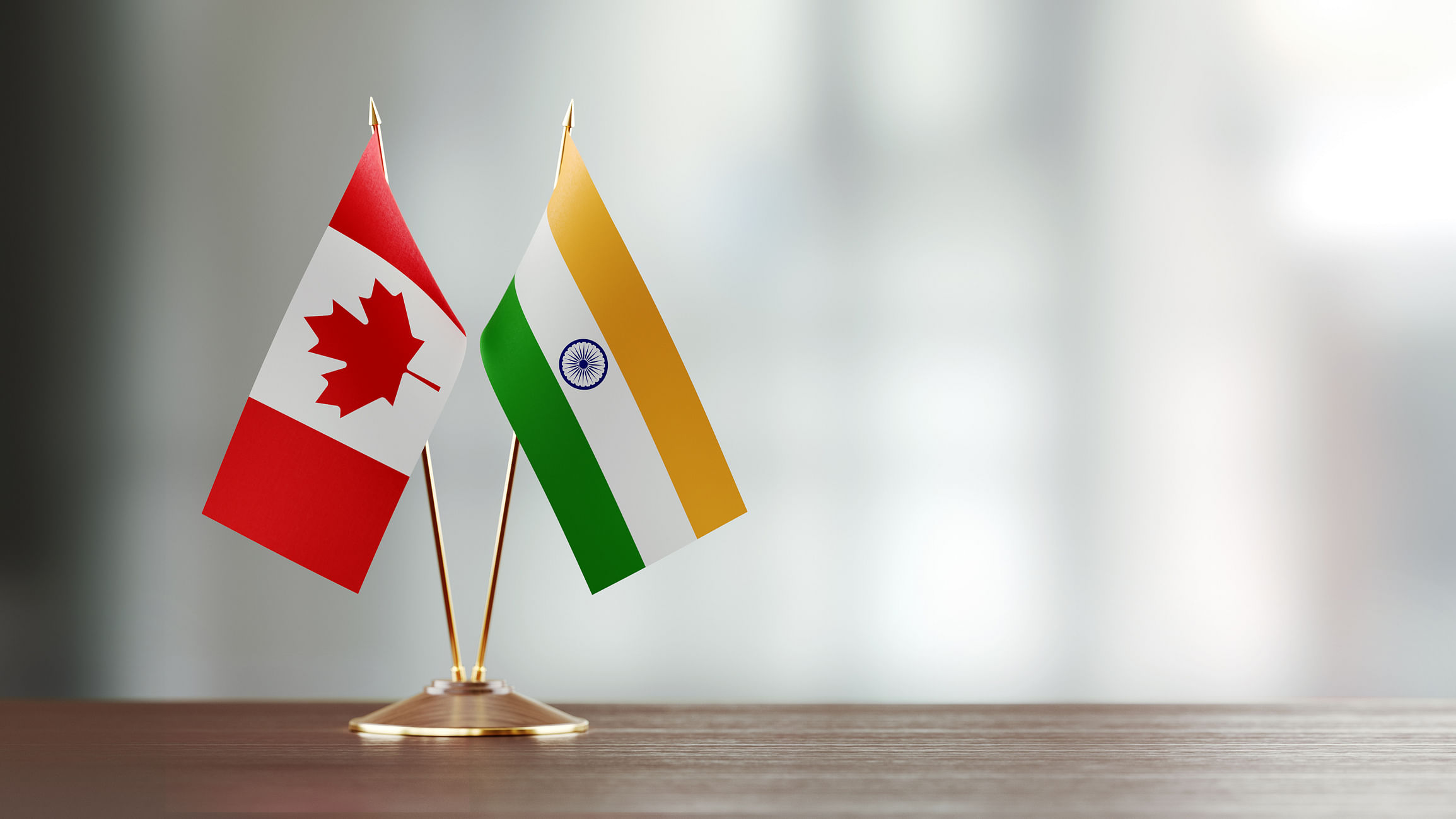
The flags of Canada and India.
Credit: iStock Photo
India has questioned the credibility of the investigation launched by Canada into the killing of a Khalistani Sikh extremist in the North American country and called it ‘tainted’ – thus subtly rejecting the calls by the United States and the United Kingdom to cooperate and participate in the probe.
New Delhi’s envoy to Ottawa, Sanjay Kumar Verma, said that the investigation launched in Canada had already been tainted.
“Where is the evidence? Where is the conclusion of the investigation? I would go a step further and say now the investigation has already been tainted,” he said in an interview with the Globe and Mail newspaper of Canada.
“A direction has come from someone at a high level to say India or Indian agents are behind it,” the newspaper quoted him saying in response to a question.
Though Verma did not name anyone, he apparently hinted at the possibility of the investigation being influenced by Canadian Prime Minister Justin Trudeau’s allegation about the role of the agents of the Government of India in the June 18 killing of Hardeep Singh Nijjar, a Khalistani Sikh extremist, in the parking lot of a gurdwara in the British Columbia province of the North American country.
Verma made the comment even as External Affairs Minister S Jaishankar said at an event in New Delhi on Saturday that diplomacy could still ease the strains in the India-Canada relations and that he and his counterpart in Ottawa, Mélanie Joly, had been in touch with each other.
Joly had also said a few days back that she had been in contact with Jaishankar.
The High Commissioner of India in Ottawa also said that New Delhi had not received any “specific or relevant information” from the Government of Canada.
Ottawa has been claiming that it had made New Delhi aware of its investigation into the allegation about the role of the agents of the Government of India in the killing of Nijjar.
The relations between New Delhi and Ottawa hit a new low over the past few weeks after Trudeau told the House of Commons – the lower house of the Parliament of Canada – on September 18 that his government’s security agencies were actively pursuing the ‘credible allegations’ about ‘a potential link’ between New Delhi’s agents and the killing of Nijjar.
India dismissed the allegation as ‘absurd’, ‘motivated’ and ‘unsubstantiated’.
Ever since Trudeau accused New Delhi of playing a role in the killing of Nijjar, the US and the UK repeatedly asked India to cooperate with and participate in the probe launched by Canada.
Nijjar was the commander of the Khalistan Tiger Force and one of India’s most wanted fugitive extremists. He, however, has been living in Canada for the past several years and has been involved in running the campaign for the secession of Khalistan from India.
The allegation, however, triggered a diplomatic row, with both sides expelling each other’s diplomats and issuing tit-for-tat travel advisories. India called Canada a safe haven for terrorists and suspended issuing visas for Canadians.
It, however, recently restarted issuing certain categories of visas for the citizens of Canada. New Delhi also made Ottawa downsize its high commission in India and its consulates in other cities, leading to the departure of 41 diplomats of Canada.
Verma said that Ottawa had not taken any action on 26 requests New Delhi had made over the past five or six years for extradition from Canada of the fugitives wanted by India.
Trudeau and his government in Canada often invoked freedom of speech as an excuse for not acting against the Khalistani Sikh extremists, who often led aggressive protests against India’s high commission in Ottawa and the consulates in Toronto and Vancouver and ran hate campaigns against India’s diplomats in Canada.
